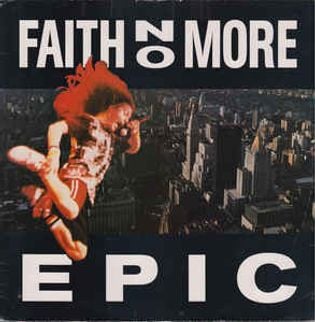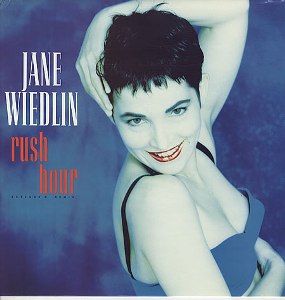 In 1983, Matthew Wilder released Break My Stride, a track that would become an emblem of carefree optimism and upbeat pop in the early ’80s. It’s one of those songs that hits immediately with a cheerful, infectious energy, the kind that makes it impossible not to tap your foot, hum along, or belt out the lyrics in your car at top volume. Combining a bouncy rhythm, catchy hooks, and Wilder’s smooth vocal delivery, Break My Stride isn’t just a song—it’s a declaration of personal resilience, delivered with a wink and a wink-worthy amount of ’80s flair.
In 1983, Matthew Wilder released Break My Stride, a track that would become an emblem of carefree optimism and upbeat pop in the early ’80s. It’s one of those songs that hits immediately with a cheerful, infectious energy, the kind that makes it impossible not to tap your foot, hum along, or belt out the lyrics in your car at top volume. Combining a bouncy rhythm, catchy hooks, and Wilder’s smooth vocal delivery, Break My Stride isn’t just a song—it’s a declaration of personal resilience, delivered with a wink and a wink-worthy amount of ’80s flair.
From the opening notes, the song sets a buoyant tone. The keyboard riff leaps out, bright and punchy, accompanied by a perky drumbeat that immediately signals that this is a track meant to energize and uplift. The rhythm section locks in tight, propelling the song forward with an unstoppable momentum that mirrors the lyrical message: nothing—literally nothing—can break your stride. This combination of playful melody and assertive rhythm creates an earworm of instantly recognizable pop perfection.
Wilder’s vocal performance is both relaxed and confident, conveying an effortless charm that makes the song feel conversational, even personal. His delivery walks a line between cheeky humor and earnest determination, perfectly matching the song’s lyrical themes of persistence, independence, and self-assurance. Lines like “Ain’t nothin’ gonna break my stride, nobody gonna slow me down, oh no, I got to keep on movin’” are delivered with such conviction that it’s impossible not to believe him—or, at the very least, join him in singing along. It’s a rare moment in pop music where simplicity, conviction, and catchiness intersect to create a lasting impact.
Lyrically, Break My Stride is straightforward yet delightfully effective. There’s no need for heavy metaphor or complex narrative; the song’s message is universal and instantly relatable. It’s about moving forward despite obstacles, maintaining confidence, and refusing to let life’s setbacks derail you. And while the sentiment might seem simple, Wilder delivers it with a clever cadence and rhythm that gives the words weight and memorability. The repetition of the chorus becomes almost mantra-like, reinforcing the feel-good message while also embedding the song deep in the listener’s mind.
Musically, Break My Stride exemplifies early ’80s pop production with a playful edge. Synths shimmer and sparkle throughout, adding color and brightness to the track without overwhelming the natural groove of the rhythm section. The bassline is nimble and propulsive, weaving under the vocals and keyboards like an ever-present guide, pushing the song forward while reinforcing its buoyant mood. Drums punctuate with precision, accentuating the vocal phrasing and contributing to the overall sense of momentum that drives the song from start to finish.
One of the most charming aspects of Break My Stride is its infectious optimism. Even in the midst of life’s potential downfalls—symbolized in lines about obstacles or anyone trying to slow you down—the song maintains an almost irrepressible sense of joy. This isn’t preachy motivation; it’s a playful, music-driven assertion that life is better when you keep moving forward. The musical arrangement supports this, with bright keys, percussive accents, and lively backing vocals creating a sense of forward motion that mirrors the lyrical theme. It’s as if the entire band is personally cheering you on as you navigate your day.
The song’s production also deserves attention for its economy and effectiveness. Unlike some ’80s tracks that risk drowning in overly dense synth layers or reverb, Break My Stride keeps everything balanced and punchy. Every element has space to shine: the keys sparkle without overpowering, the bass is prominent without being heavy, and the vocals sit perfectly atop the mix. This clarity enhances the track’s infectious quality, ensuring that every listen reinforces its memorable hooks and buoyant energy.
Another standout feature is the song’s chorus. Simple, repetitive, and joyfully declarative, it’s a masterclass in pop hook writing. The melody rises with confidence, matching the lyrics’ assertion that nothing can impede progress. Wilder’s delivery is key here: he doesn’t just sing the chorus; he performs it with a playful insistence that invites participation. It’s impossible to hear that chorus without wanting to sing along, clap your hands, or even march in place just to physically embody the song’s unstoppable energy.
Break My Stride also demonstrates the power of rhythm and phrasing in making a pop song memorable. The phrasing of the lyrics, combined with the offbeat accents in the percussion, creates a sense of movement and urgency that mirrors the song’s thematic focus. Even moments that could feel repetitive are enlivened by subtle variations in instrumentation and vocal inflection, keeping listeners engaged throughout the track. It’s a lesson in how groove and phrasing can elevate simple, optimistic lyrics into something truly infectious.
The keyboard work in particular deserves a special mention. Bright, staccato chords punctuate the rhythm and provide a playful counterpoint to the vocals, while occasional synth flourishes add melodic interest without overshadowing the song’s primary hooks. The interplay between keyboard, bass, and percussion creates a rhythmic complexity that belies the song’s surface simplicity, offering something new to notice with each listen. It’s a subtle detail that helps explain why the song endures as a pop favorite decades after its release.
Humor and lightheartedness also permeate the track. The very premise of a song about moving forward regardless of life’s obstacles is inherently fun, and Wilder’s delivery accentuates the playfulness. Lines are delivered with just enough emphasis to be memorable but never so seriously that the song feels heavy-handed. This balance between motivational message and tongue-in-cheek delivery is part of what gives Break My Stride its charm and broad appeal. It’s music that can make you smile, dance, and feel good about the world all at once—a rare combination.
Another notable element is the song’s pacing. At just over three minutes, it doesn’t overstay its welcome, yet it manages to build momentum, establish hooks, and reinforce its lyrical mantra without feeling rushed. The bridge offers a brief shift in texture, adding variation and preventing monotony, before returning to the irresistible chorus that drives home the song’s central message. It’s a masterclass in concise, effective pop songwriting, proving that brevity combined with energy and hook-laden melody can have a lasting impact.
Culturally, Break My Stride reflects the optimistic, upbeat ethos of early ’80s pop. It’s a song that fits perfectly on a radio playlist alongside synth-driven hits and danceable pop tracks, yet it retains a unique character thanks to Wilder’s vocal charm and the song’s buoyant instrumentation. It’s both emblematic of its era and timeless in its appeal—listeners decades later can still enjoy its energy, humor, and catchiness without feeling trapped in a particular musical moment.
The song’s enduring appeal also lies in its universal message. It’s about resilience, independence, and maintaining momentum despite life’s inevitable challenges—an idea that transcends time and place. The lyrics are easy to remember and sing along to, making it a favorite at parties, events, and any situation where a boost of upbeat energy is needed. The track’s combination of lyrical simplicity, rhythmic drive, and melodic hook ensures that it continues to resonate across generations, maintaining relevance far beyond its initial chart success.
Break My Stride is also an excellent example of how effective pop music can combine simplicity with musical sophistication. While the song may seem lighthearted and straightforward on the surface, the careful attention to arrangement, rhythmic variation, and vocal phrasing reveals a deeper level of craftsmanship. Every note, every accent, and every vocal inflection contributes to the overall effect, resulting in a track that is both instantly enjoyable and rewarding to dissect for musical detail.
The song’s opening, chorus, and bridge structure are particularly effective in creating momentum. The introduction immediately grabs attention with its bright, catchy keyboard line, while the verses establish lyrical context and rhythmic drive. The pre-chorus builds anticipation, leading to a chorus that feels explosive yet balanced. The bridge provides contrast and prevents monotony, before returning to the chorus to drive the song home with full energy. This well-considered structure demonstrates how careful songwriting can amplify the emotional impact of even the simplest lyrical ideas.
In conclusion, Matthew Wilder’s Break My Stride (1983) is an exemplary piece of early ’80s pop: upbeat, infectious, and unforgettable. The track’s combination of buoyant instrumentation, clever vocal delivery, and optimistic lyrical message creates a listening experience that is simultaneously fun, energizing, and inspiring. Wilder’s vocals carry the playful determination of the lyrics, while keyboards, bass, and percussion provide a rhythmic foundation that ensures the song never loses momentum. The clever hooks, memorable chorus, and lighthearted energy make it a standout track not just of the 1980s but of pop music history.
Whether experienced as a nostalgic throwback or discovered fresh by a new generation, Break My Stride continues to delight listeners with its charm, energy, and timeless message. It’s a reminder that no matter the obstacles—or the haters trying to slow you down—good music, infectious hooks, and a positive attitude can carry you forward. Matthew Wilder created more than just a catchy pop song; he crafted an anthem for resilience, optimism, and the enduring power of music to lift spirits and get feet moving.
Ultimately, Break My Stride is more than a catchy 1980s tune—it’s a declaration of joy, persistence, and the unshakable confidence that comes from refusing to let life slow you down. Its blend of infectious rhythm, melodic hooks, and charismatic vocals ensures its place in pop history as a song that is both endlessly entertaining and surprisingly empowering. Turn it up, sing along, and let nothing break your stride—because Wilder made sure this track is built to keep moving forward, no matter what.


